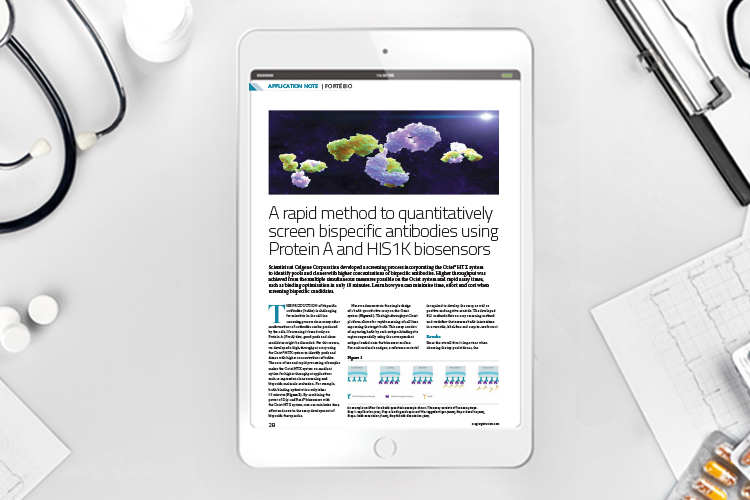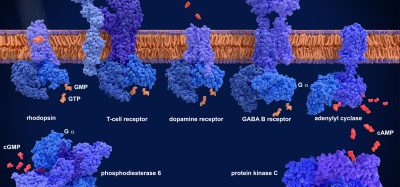Application note: A rapid method to quantitatively screen bispecific antibodies using Protein A and HIS1K biosensors
Posted: 26 March 2020 | ForteBio | No comments yet
Scientists at Celgene Corporation developed a screening process incorporating the Octet® HTX system to identify pools and clones with higher concentrations of bispecific antibodies. Higher throughput was achieved from the multiple simultaneous measures possible on the Octet system and rapid assay times, such as binding optimisation in only 10 minutes. Learn how you can minimise time, effort and cost when screening bispecific candidates.
THE PRODUCTION of bispecific antibodies (bsAbs) is challenging for scientists in the cell line screening process since many other conformations of antibodies can be produced by the cells. If screening is based only on Protein A (ProA) titre, good pools and clone candidates might be discarded.
For this reason, we developed a high-throughput assay using the Octet® HTX system to identify pools and clones with higher concentrations of bsAbs. The ease of use and rapid processing of samples makes the Octet HTX system an excellent option for higher throughput applications such as expression clone screening and bispecific molecule evaluation.
Related content from this organisation
- A label-free imaging technique for drug evaluation at single‑cell level
- Bispecific antibodies: the next generation of immuno-oncology drugs
- Oncology meets immunology – antibody-mediated regulation of the immune response
- Antibody therapeutics for COVID-19
- Defusing antibody neutralisers in AAV gene therapy
Related topics
Antibodies, Assays, Screening
Related organisations
ForteBio









